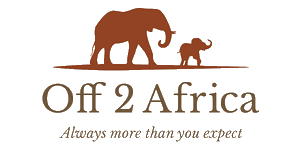 BR
BR
Email Gisela Scheinpflug | 35-50 years of age
The Adventure of a Wildlife
In Africa, for driving a car from one place to another, you must travel a lot. The paths are long and roads are poorly maintained, then the journey by car, from Tete, on Mozambique, to the Luangwa National Park, on Zambia, was absurdly tiresome, entitled to an electrical fault in the rental car. So, we had to distribute the contents of the damaged car, including people, for the other remaining cars. Lucky we were in a very large group.
Safaris in the Luangwa National Park were different from those made in the Kruger Park, South Africa. They are wilder and more close of local people's lives. The villages of the region are practically within the park and there are no fences enclosing the area. After the damaged car episode, we arrived too late and we went to the park in searching for our lodge, which was located into the park. The plates looked old and were not in good conditions, especially for us that we were tired and concerned about driving at night, in a national park full of wildlife in Africa.
So we started some feelings about being lost. We had to return to the starting point and then we found another lodge where we asked for guidance. They said we should just to move on and we did it, until we found a road forked and we did not know what to do. We choose one way to found a bridge wich we couldn't see clearly, in the darkness, if we could cross or not. It was almost a letter "V", entering to the center of the crossing stream and seemed that was broken on the half. We couldn't see the whole path far ahead. On guy in the car was opening the car's door to go out there and see better, when we shouted all together "don't go out of the car!!" We hold him by the shirt and closed the car’s door again, almost in panic. The driver put the car in a way that we could see clearly the bridge path, so finally we crossed the bridge to find just after that a herd of elephants crossing the road.
I had seen these scenes at Kruger Park, on South Africa, that was the first wildlife experience for the others. You can imagine the reaction of a person who was never seen an elephant, to find a whole herd in the middle of the night, crossing the road just in front of the vehicle. There were the most oddest reactions, which began smoothly with no one showing their own fear, but in few seconds everybody were lost in their own emotions and some even began to pray quietly while others gave the most absurd guidelines for the driver. "Speed up this car, let's go at once," was all that was heard in a voice full of fear, while the driver, a brazilian guy, stuck by the scene and driving for the first time in the oposite seat of Brazil, remained in shock. I asked him to avoid sudden gestures, high beams and horn, to stop the car and wait the herd leaving. Everyone then got relaxed and finally enjoyed that wonderful scene of wildlife.
We started again our searching for the lost lodge, and then we could saw a plate were it was written "Wild Life". That was the Lodge's name, but in that time we were so excited that we started to think that it was simply stating the place where we were at that time, because we were truly in the "Wildlife".
Luangwa National Park is actually much more wilder and less under control than the Kruger Park, with far fewer animals in it. The safari guide in the next day explained that, because Luangwa is a natural park, not being allowed to acquire animals from other regions. All animals were borned and raised there, spontaneously. He also said to us that, due to the hunters, there are a very low adult males population of rhinos, lions and buffalos. Hunters could buy a lion to hunt for something like five thousand dollars. They could bring home the animal skin and teeth. Should be a nice prize, but I still prefer to take my pictures.
Some animals are almost unique in Luangwa National Park, such as their zebra, whose pattern of two colors only exists in Luangwa and some few regions of Malawi and Zimbabwe. The pattern is really beautiful, more than the other one that I knew at Kruger Park, which had beige tones between the white and black stripes.
During a safari I saw a large group of young lions resting. They were so young that it was just a little furry manes, pending down from their faces, as happens with some human adolescents. It was really a wonderful feeling, to see the animals there so loose, so free and so close to us.
Impalas are the wild animals fast food. They are found in large groups in all safaris I've ever done. In Luangwa, there was also another animal very like him, but with a weird white mark on his ass. The safari guide told us a very old story about that, regarding to the bible. Noah finished painting his ark in a hurry and shipped all the animals when the ink was still fresh. That animal was the first to use the bathroom and because of that it got a stamped with the brand of toilet seat on his ass.
Safari is a lottery, with many different surprises. Sometimes we are fortunate, some less so. A couple who were with us saw a lions hunting, last night safari. They said the feeling were incredible, and you could hear the lions chewing the impala's bones as if they were tiny chicken wings. Hyenas came and fought tough for a piece, dragging it down near the river and eventually loose the game for a crocodile emerged from the water.
These are the feelings of life, the big ones eating small ones, even in nature, which is by itself more than perfect.
 CA
CA
50-65 years of age
A wonderful experience.
I was so impressed with the guides and people who helped us in the camp. I was in Zambia for a 4 day safari and was totally thrilled with the number of animals I saw. I would recommend Zambia as a safari destination to everyone. The weather was ideal and we were able to see the wild life during the day and at night with the large spot lights. The camp was well equipped with large tents, restaurant, bar and swimming pool and is in a perfect location right on the river.
under20 years of age
Unforgettable experience in a country so far unspoilt by mass tourism
In the south of the country, near the border with Zimbabwe, lies Mosi-oa-Tunga National Park, near to Zambia's biggest tourist attraction, the Victoria Falls. The wildlife includes giraffes, zebra, warthogs, elephants, antelope and a variety of smaller animals. At the time of our party's visit (mid-July) it was a relatively dry season with temperatures in the mid-20s), making the park's environment and ambiance exactly as one would picture a safari park - parched scrubland and bright blue skies. The park is not necessarily hugely extensive, yet the animals within its limits are something definitely worth seeing, especially the birds on the banks of the Zambezi River which flows through the park. However, the most unforgettable experience of visiting this beautiful area was an opportunity to see the last remaining white rhino in Zambia, the only one having not been poached in the country.
After a fantastic day in the park, we stopped on our journey back towards our accommodation to see a herd of elephants, outside the park underneath a road bridge. The impression which we were left with was that it was not only the park which offered a host of wildlife watching opportunities, but the wider area was a simply fantastic place to immerse oneself in a safari environment. I would say it is imperative to visit Mosi-oa-Tunga because tourism revenue will encourage conservation efforts in the area and further improve the safari experience, providing money does not go to spoil the unspoilt and genuine atmosphere which makes this area so wonderful.
Email Steve & Michelle | 35-50 years of age
We only know this one park!
Email tidingstendai | 35-50 years of age
The Zambezi River, Victoria Falls and Livingstone Are Great Zambian Assets
A truly rewarding Zambian experience is that which follows the Zambezi River. The river itself is so engrained into the Zambian scape. The boat cruises at Victoria Falls, Livingstone are great and for the more adventurous further travel with the river to Lake Kariba is for the taking or better still follow the river from source. Road network in Zambia remains a challenge but with the new economic growth one hopes for a speedy resolution on this.








